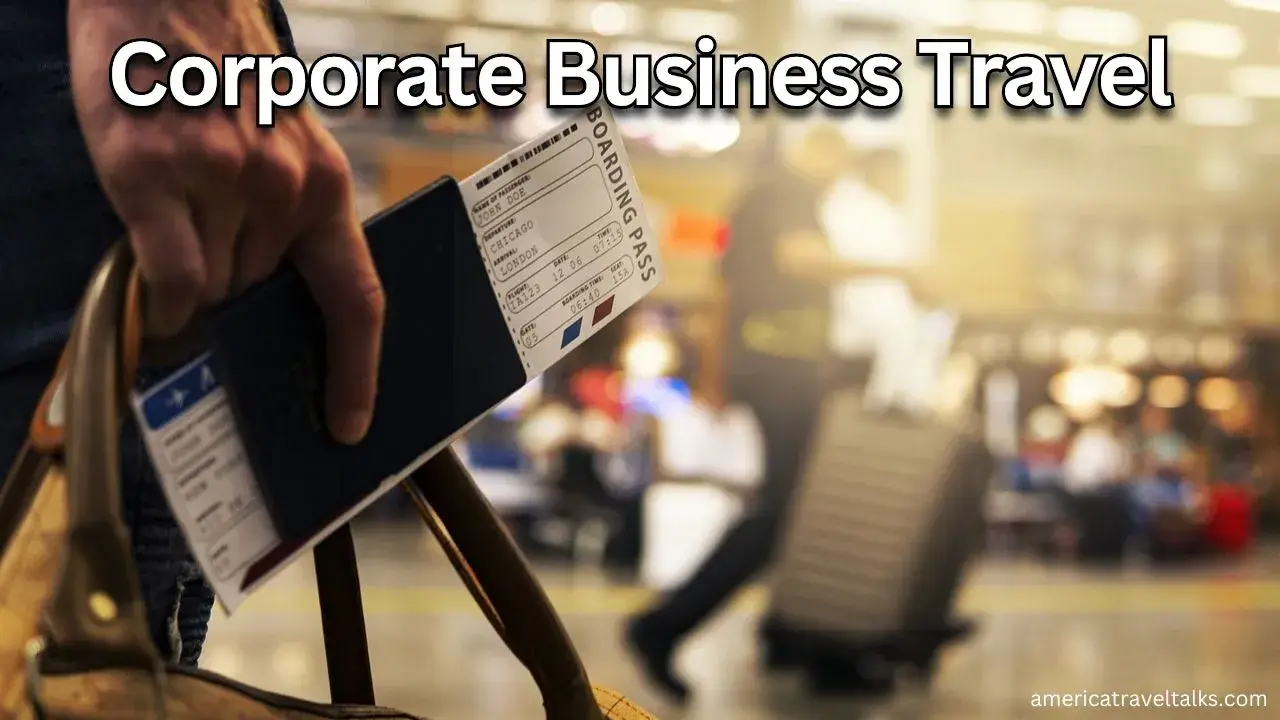
In the ever-evolving landscape of global business, corporate travel has become a vital aspect for organizations striving for growth and expansion. This article delves into the various facets of corporate business travel, exploring its significance, different forms, best practices, policies, and considerations for a successful and secure experience.
The Importance of Corporate Business Travel
Unlocking Opportunities
Corporate business travel acts as a gateway to new business opportunities, facilitating the expansion into untapped markets, connecting with a broader pool of prospects, and enhancing brand presence and reputation.
Individual Benefits
Beyond the advantages for organizations, business travel offers individuals the chance to meet colleagues, participate in career-enhancing opportunities, and network within their industry. It also provides a unique opportunity to explore new destinations.
Understanding the Significance
Business-Related Reasons
There are numerous reasons for business travel, including team building, learning opportunities, gaining different perspectives, connecting with a wider network, and driving sales. The benefits extend beyond the stated purpose, fostering confidence, cultural competency, relationships, and company reputation.
Desirable Job Perk
Many employees view the opportunity to travel for work as a desirable job perk. While corporate travel involves expenses, the potential return on investment in terms of leads, sales, and tax-deductible benefits makes it a valuable proposition.
Diverse Forms of Corporate Business Travel
Events and Educational Opportunities
Corporate travel encompasses various forms, such as attending meetings, conferences, networking sessions, fairs, training sessions, seminars, and workshops. Retreats and guided trips contribute to team-building in novel contexts, fostering different perspectives and stronger working relationships.
Due Diligence from a Client Perspective
From a client standpoint, business travel serves as due diligence, ensuring the legitimacy, legality, and compliance of vendors or suppliers. Regular audits through travel confirm the actual operations of supplier organizations.
Crafting an Effective Corporate Travel Policy
Challenges and Considerations
Managing corporate travel poses challenges for businesses, including cost control, time-intensive logistics, trust in employees, and safety and security risks. A well-structured corporate travel policy becomes a crucial tool to set expectations, communicate guidelines, control expenses, and streamline booking and logistics.
Key Components of a Travel Policy
A comprehensive corporate travel policy should cover the purpose of travel, eligible employees, booking processes, risk management, expected employee behavior, eligible expenses, financial tracking, acceptable booking practices, and travel insurance.
Best Practices for Corporate Business Travel
Streamlining Booking Processes
To enhance the booking process, save costs, and simplify expense reporting, designating preferred travel agencies, online platforms, vendors, and lodgings can be beneficial. Dedicated personnel or teams overseeing corporate travel can further optimize the process.
Managing Expenses and Budgets
Careful management of expenses and budgets is crucial for controlling costs. Clear guidelines on expensable items, policies for tracking and reporting expenses, and leveraging corporate credit cards and travel rewards contribute to efficient expense management.
Prioritizing Traveler Safety and Security
Ensuring the safety and security of business travelers is paramount. Implementing a travel insurance plan, conducting travel risk assessments, and outlining safety and emergency guidelines within the corporate travel policy are essential.
Maximizing Productivity
Balancing business and leisure, often termed “bleisure,” is a major allure of corporate business travel. However, maintaining productivity requires clarity on trip purpose, workload expectations, and effective time management. Researching and planning for mental and physical well-being is crucial for frequent travelers.
Business Travel Etiquette
Representing Company Values
Perception matters when traveling as a company representative. Maintaining professionalism and embodying company values during interactions with vendors, clients, and peers is essential.
Cultural Sensitivity
Being mindful of local customs and professional etiquette demonstrates cultural sensitivity. Pre-trip research on greetings, currency handling, and basic phrases contributes to positive interactions across diverse cultures.
Sustainability in Corporate Business Travel
Environmental Considerations
Acknowledging the environmental impact of corporate travel, businesses are reevaluating practices. This includes reducing emissions, seeking sustainable travel options, and supporting local communities and ecosystems.
Leveraging Technology for Efficient Travel
Software and Tools
Technology plays a pivotal role in corporate business travel. Utilizing travel management platforms, expense-tracking apps, navigation tools, and communication apps enhances efficiency. Cybersecurity considerations ensure the safe use of technology.
Conclusion
In conclusion, corporate business travel serves as a catalyst for business growth and individual career development. By implementing and communicating best practices, companies can ensure a successful and rewarding travel experience for their employees, fostering strong relationships and teams.
You may also like:
FAQs
1. What is corporate business travel?
Corporate business travel involves individuals representing their organizations for work-related reasons, such as attending meetings, conferences, or industry events.
2. Why is a corporate travel policy essential?
A corporate travel policy sets expectations, communicates guidelines, controls expenses, and streamlines booking and logistics, ensuring a smooth travel experience.
3. How can employees balance work and leisure during business trips?
Maintaining work-life balance requires clarity on trip purpose, workload expectations, effective time management, and planning for mental and physical well-being.
4. What are the financial considerations for corporate business travel?
Clear expense guidelines, budget-setting, and leveraging corporate credit cards and travel rewards contribute to efficient expense management.
5. How can businesses contribute to sustainable corporate travel?
Reducing emissions, opting for sustainable travel options, and supporting local communities are ways businesses can make corporate travel more environmentally responsible.




